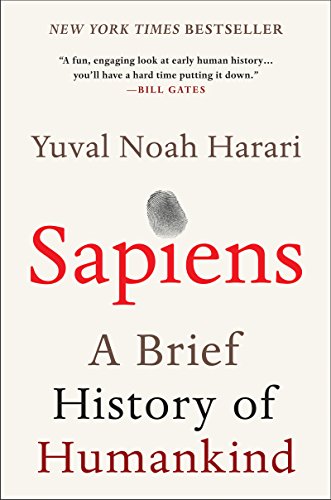

This article is an excerpt from the Shortform summary of "Sapiens: A Brief History of Humankind" by Yuval Noah Harari. Shortform has the world's best summaries of books you should be reading.
Like this article? Sign up for a free trial here .
What is postmodernism’s view on culture? How does postmodernism on culture affect the way we view history?
Postmodernism on culture says that humans exist to serve culture, and not the other way around. In a sense, according to the postmodernist view, cultures are plagues of society, not entities that serve us.
We’ll cover postmodernism on culture and look at other ways scholars view our relationship with culture.
Postmodernism on Culture: Cultures Take Advantage of Humans
We think that cultures exist to serve us, but we’re actually serving them. Scholars in different fields have different analogies to describe this process. Therefore, this concept has three names: postmodernism, mimetics, and game theory.
Postmodernism on Culture: Culture as a Plague of Society
Scholars in the humanities call the process of humans serving cultures “postmodernism.” For example, they talk about nationalism as a plague that infiltrated the world in the 19th and 20th centuries. It started in a few countries, then spread to its neighbors, leaving war and genocide in its wake. Nationalism was purportedly good for humans, but it actually weakened and killed its hosts. It was and is only good for itself. This is the view of postmodernism on culture.
Mimetics on Culture: Culture as a Parasite of Humanity
Similar to postmodernism on culture is mimetics on culture.
Many scholars compare cultures to parasites, an approach called mimetics. Just as parasites live in human hosts, feed off of them, and “care” only about multiplying and spreading from host to host (often at the expense of the host’s health), humans are just the hosts and vehicles of cultures. In other words, cultures don’t exist for the benefit of humans; rather, they infect and feed off humans.
If this analogy sounds threatening, it should. Cultures live inside our minds and spread from person to person. They often weaken or even kill the host when the host is willing to die to propagate the culture, such as those who’ve died in the name of Naziism, democracy, Christianity, human rights, Islam, and nationalism.
Game Theory on Culture: Culture as a Game That No One Wins
Also similar to postmodernism on culture is game theory on culture.
Scholars in the social sciences call this process game theory. For example, they compare arms races to a game that no one wins. Arms races benefit no country or individual. Like a parasite, an arms race hurts all the players involved, and yet the players still spread the system. If Pakistan buys more weaponry, so does India. When India develops a nuclear bomb, Pakistan develops one in response. When Pakistan increases the size of its navy, so does India. At the end of this process, the balance of power between the two countries is exactly the same as it was before the arms race started, but both countries have bankrupted themselves, spending money that could have been used for health care or education. Systems like arms races only benefit themselves.
History Doesn’t Benefit Humans
One thing postmodernism on culture has in common with the mimetic view on culture and the game theory view on culture is that culture, and history itself, doesn’t benefit humans.
We can say with confidence that history doesn’t care about us. We like to think that as history progresses, life for humans gets better, but there’s no reason to think that what’s good for humans is also what’s good for history or vice versa. Our well-being doesn’t necessarily increase as history moves forward. This is one takeaway from the view of postmodernism on culture.
Similarly, there’s no reason to think that just because Christianity and Islam defeated other religions, they are therefore the best religions for humanity. We have no objective way to judge what’s best or even what’s good because different cultures define “good” differently.
Still, we believe that the way things are is the way they should be, for two reasons:
- The victors always think their way is the best way, and the victors are the ones who write the history books, rule empires, and define what’s “good” for humanity. Christians say the spread of their religion was the best outcome for mankind, but there’s no evidence that Christianity benefits us more than Manichaeism would have.
- We’re biased toward the present—we think that the victory of a particular ideology or system is an indication of its goodness rather than an indication of a chance occurrence. For instance, we assume that Islam and Christianity must be so widespread today because they benefit humanity, but their prevalence isn’t proof of their goodness.
Because the progress of history is inherently unpredictable, we can’t explain why today’s world is the way it is. But we should remember that, just as history is unpredictable, history isn’t inevitable, and our world isn’t the product of benevolent hands of time. It’s important to question our values, cultures, and systems, and ask why we adhere to them in the first place. This is the value of postmodernism on culture.
———End of Preview———

Like what you just read? Read the rest of the world's best summary of "Sapiens" at Shortform . Learn the book's critical concepts in 20 minutes or less .
Here's what you'll find in our full Sapiens summary :
- How Sapiens outlived and outlasted the 8+ other human-like species on Earth
- The 3 critical revolutions in human existence that led to our domination of the planet
- How much of what powers our world today is really just a shared mass delusion
- What the future of humanity might look like






